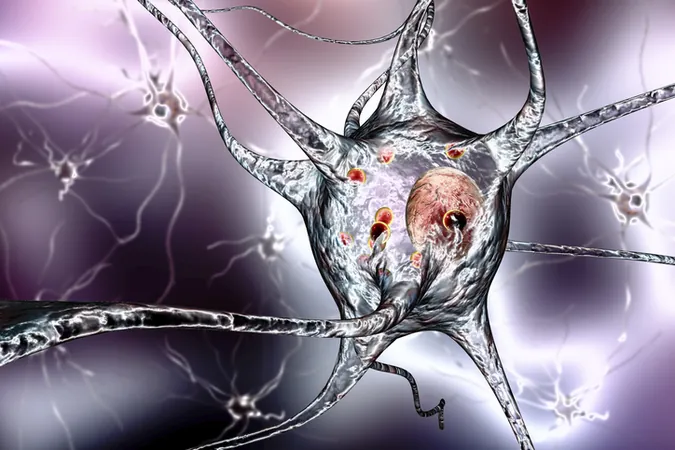
Could Ozempic and Wegovy Be the Secret Allies for Brain Health?
2024-10-11
Author: Siti
Introduction
Recent studies suggest that GLP-1 medications like Ozempic, Wegovy (semaglutide), and Zepbound (tirzepatide) might do more than just aid weight loss and control blood sugar for those suffering from type 2 diabetes or obesity. A new comprehensive review published in Cell Metabolism highlights potential neuroprotective benefits of these drugs, indicating that they could play a crucial role in fighting brain inflammation and potentially protecting against neurodegenerative diseases such as Alzheimer’s.
The Link Between Obesity and Neurodegenerative Diseases
Chronic inflammation, a common consequence of obesity, has been linked to a higher risk of neurodegenerative diseases. The brain, much like the rest of the body, suffers when obesity incites a low-grade inflammatory response. This inflammation not only affects overall health but can also compromise cognitive function. Research indicates that the inflammation pathway associated with obesity may fundamentally alter cognitive function and contribute to diseases like Alzheimer’s.
Mechanisms of GLP-1 Medications
The review specifies how GLP-1 medications can not only help in weight management but also reduce inflammation in the brain and potentially enhance the integrity of the blood-brain barrier – a critical shield that protects the brain from harmful substances and infections. By facilitating a balanced neurovascular unit, GLP-1 drugs may aid in improving cognitive function and, as studies show, could even bolster neuroplasticity and neuron survival.
Expert Insights
Dr. David Hunter, an associate professor of neurology at UTHealth Houston, shed light on the importance of addressing inflammation in Alzheimer’s pathology. "Decades of research into Alzheimer’s disease have shown that inflammation is a critical component in its development," he told Medical News Today. Hunter noted that GLP-1 medications could adjust inflammatory responses, reducing the risk of developing dementia, particularly among those struggling with metabolic syndrome.
Emerging Animal Studies
Emerging research includes findings from studies conducted on animal models. For instance, one study revealed that the GLP-1 drug liraglutide (marketed as Victoza) increased the number of astrocytes, which are essential for brain cell protection. Another notable study indicated that GLP-1 therapy might help to avert the death of retinal ganglion cells, critical components for vision, in cases of glaucoma.
Future Directions
Though the mechanisms of action are still unfolding, the review emphasizes the need for further studies to clarify how GLP-1 receptor signaling can reverse inflammation and confer brain health benefits. With the rising prevalence of obesity and associated chronic conditions—over 40% of U.S. adults are classified as obese according to the CDC—the exploration into the neuroprotective properties of these medications becomes increasingly significant.
Conclusion
As researchers delve deeper, the potential for GLP-1 drugs to serve as multifaceted treatments could usher in new avenues for managing not just obesity and diabetes, but also the looming threat of neurodegenerative diseases. With ongoing trials, particularly surrounding semaglutide seeking FDA approval for Alzheimer’s treatment, the future looks promising for those in search of solutions to improve both physical and cognitive health.
Stay tuned, because the findings of this review could change the landscape of treatment options for millions suffering from both obesity and neurodegenerative conditions. Could Ozempic and Wegovy be your future brain health heroes?




 Brasil (PT)
Brasil (PT)
 Canada (EN)
Canada (EN)
 Chile (ES)
Chile (ES)
 España (ES)
España (ES)
 France (FR)
France (FR)
 Hong Kong (EN)
Hong Kong (EN)
 Italia (IT)
Italia (IT)
 日本 (JA)
日本 (JA)
 Magyarország (HU)
Magyarország (HU)
 Norge (NO)
Norge (NO)
 Polska (PL)
Polska (PL)
 Schweiz (DE)
Schweiz (DE)
 Singapore (EN)
Singapore (EN)
 Sverige (SV)
Sverige (SV)
 Suomi (FI)
Suomi (FI)
 Türkiye (TR)
Türkiye (TR)